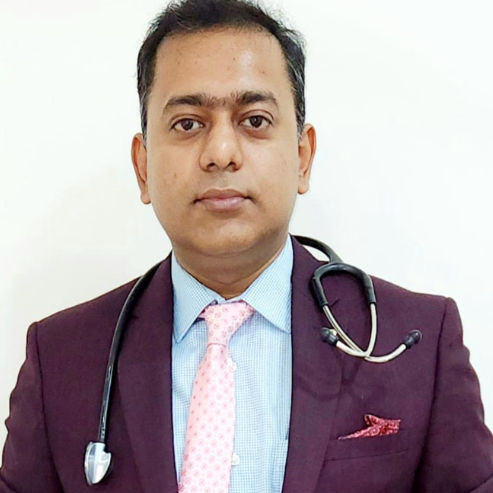Understanding Early Stage Tonsil Cancer Symptoms
Know about early stage tonsil cancer, its symptoms, causes, options for treatment and tips for management and treatment and more.


Introduction
Tonsil cancer is a type of throat cancer that develops in the tonsils, which are part of the immune system located at the back of your throat. Detecting it early can significantly improve treatment outcomes. However, early symptoms can be subtle and easily mistaken for common throat infections.
This article will help you recognize the signs, understand the causes, and learn how to manage or seek timely medical care.
What Are the Early Symptoms of Tonsil Cancer?
Early-stage tonsil cancer may not always cause noticeable symptoms, but some common signs include:
1. Persistent Sore Throat – A sore throat that doesn’t go away after a few weeks, even with antibiotics or home remedies.
2. Difficulty Swallowing – Feeling pain or discomfort while swallowing food or liquids.
3. Ear Pain – Unexplained earache, often on one side, without an ear infection.
4. Lump in the Neck – A painless lump or swelling in the neck due to enlarged lymph nodes.
5. White or Red Patches – Unusual white or red patches on the tonsils.
6. Unexplained Weight Loss – Losing weight without changes in diet or exercise.
7. Voice Changes – Hoarseness or a change in voice that lasts more than a few weeks.
If you experience any of these symptoms persistently, it’s important to consult a doctor for further evaluation.
Consult a top cancer specialist for the best advice
What Causes Tonsil Cancer?
Tonsil cancer is often linked to certain risk factors, including:
Human Papillomavirus (HPV) – A common sexually transmitted infection, particularly HPV-16, is a leading cause of tonsil cancer.
Tobacco and Alcohol Use – Smoking and heavy alcohol consumption increase the risk significantly.
Weak Immune System – People with weakened immunity (due to conditions like HIV or immunosuppressive medications) are at higher risk.
Poor Oral Hygiene – Chronic irritation from infections or poor dental health may contribute.
How Is Tonsil Cancer Diagnosed?
If your doctor suspects tonsil cancer, they may recommend:
Physical Examination – Checking the throat, neck, and mouth for lumps or abnormalities.
Biopsy – Removing a small tissue sample from the tonsil for lab testing.
Imaging Tests – CT scans, MRIs, or PET scans to determine the extent of cancer.
HPV Testing – Since HPV-related tonsil cancer behaves differently, testing helps guide treatment.
Early detection improves treatment success, so don’t ignore persistent symptoms.
How Can Tonsil Cancer Be Treated?
Treatment depends on the stage and cause of cancer but may include:
Surgery – Removing the tumor and possibly affecting lymph nodes.
Radiation Therapy – Using high-energy beams to kill cancer cells.
Chemotherapy – Drugs to destroy cancer cells, often combined with radiation.
Immunotherapy – Boosting the immune system to fight cancer, especially for HPV-related cases.
Tips for Prevention and Management
While not all cases can be prevented, you can reduce your risk by:
Getting Vaccinated – The HPV vaccine (Gardasil) can protect against HPV-related tonsil cancer.
Quitting Smoking and Limiting Alcohol – Reducing tobacco and alcohol use lowers cancer risk.
Maintaining Good Oral Hygiene – Regular dental check-ups and proper oral care help prevent infections.
Eating a Healthy Diet – A diet rich in fruits, vegetables, and antioxidants supports immune health.
When Should You See a Doctor?
If you have persistent throat pain, difficulty swallowing, unexplained lumps, or voice changes lasting more than two weeks, consult a doctor for the treatment options alongside follow the tips for management of tonsil cancer for smooth recovery from disease. Early diagnosis leads to better outcomes.
Final Thoughts
Tonsil cancer may be due to HPV infection, weak immune system etc for which the symptoms include lump in neck, ear pain and severe sore throat. It can be treated by immunotherapy, chemotherapy etc. There are useful tips for managing the cancer which will support the treatment. It is good to take advice from a doctor through treatment and problem stages for better recovery.
Consult a top cancer specialist for the best advice
Consult a top cancer specialist for the best advice

Dr Sunita Samleti
Oncologist
18 Years • M.D. (Pathology)- TN Medical College, Mumbai University, Mumbai, Mar 2005 M.B.B.S. Grant Medical College, Mumbai University, Mumbai, Oct 1999
Chinagadila
Apollo Hospitals Health City Unit, Chinagadila

Dr Gowshikk Rajkumar
Oncologist
10 Years • MBBS, DMRT, DNB in Radiation oncology
Bengaluru
Apollo Clinic, JP nagar, Bengaluru

Dr. Sanchayan Mandal
Oncologist
17 Years • MBBS, DNB Raditherapy, DrNB Medical Oncology
East Midnapore
VIVEKANANDA SEBA SADAN, East Midnapore

Dr.sanchayan Mandal
Oncologist
17 Years • MBBS, DrNB( MEDICAL ONCOLOGY), DNB (RADIOTHERAPY),ECMO. PDCR. ASCO
Kolkata
Dr. Sanchayan Mandal Oncology Clinic, Kolkata

Dr. Gopal Kumar
Head, Neck and Thyroid Cancer Surgeon
15 Years • MBBS, MS , FARHNS ( Seoul, South Korea ), FGOLF ( MSKCC, New York )
Delhi
Apollo Hospitals Indraprastha, Delhi
(25+ Patients)